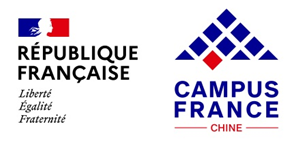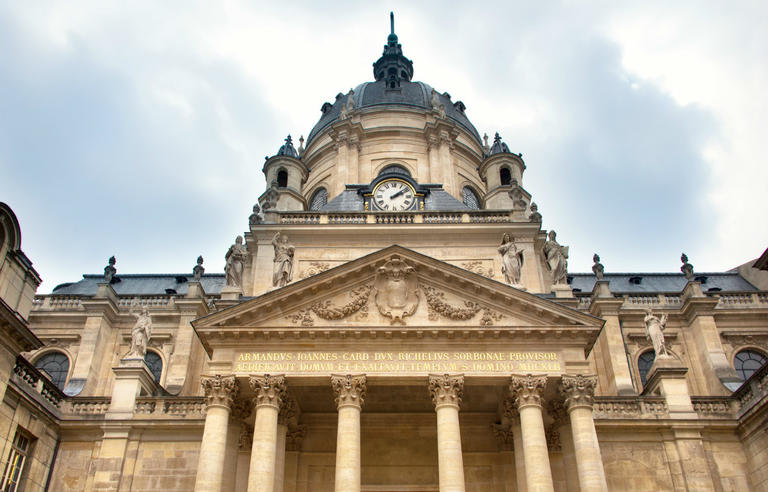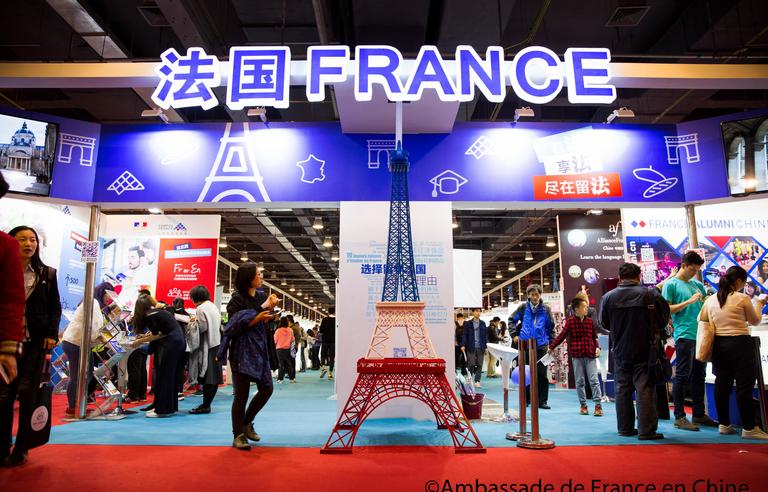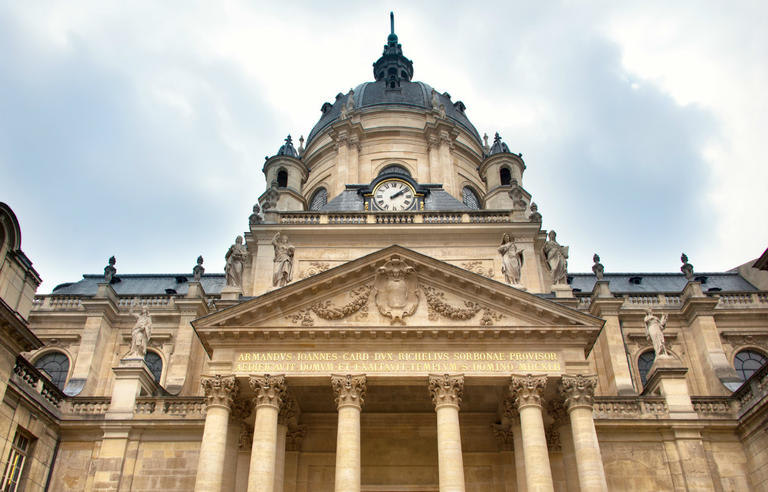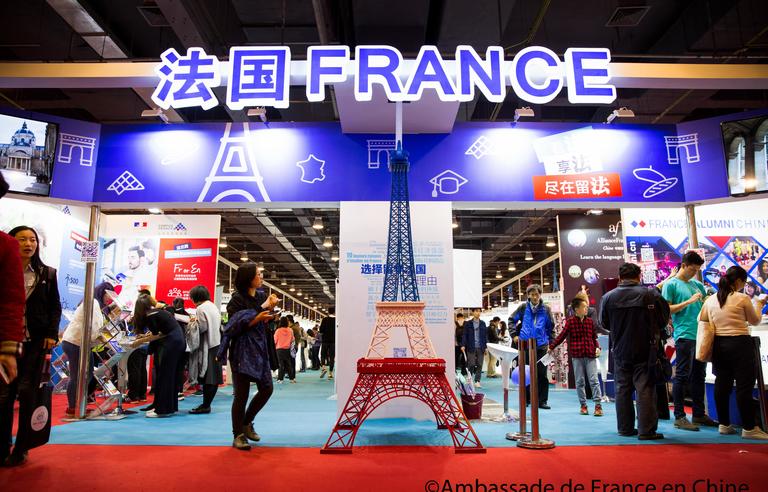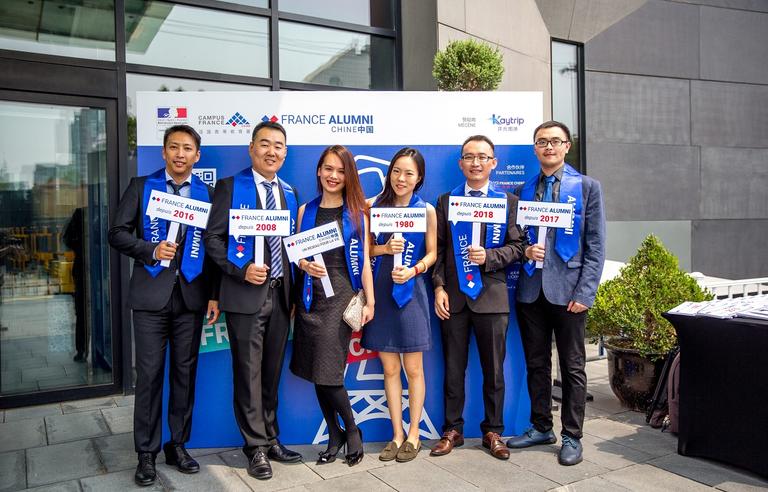"Automatic Control & Electrical Systems" (ACES 2020)
The France Excellence Summer School Automatic Control & Electrical Systems (ACES 2020) is a strong 120-hour training programme focusing on the fundamental aspects of control, observation and electrical systems.
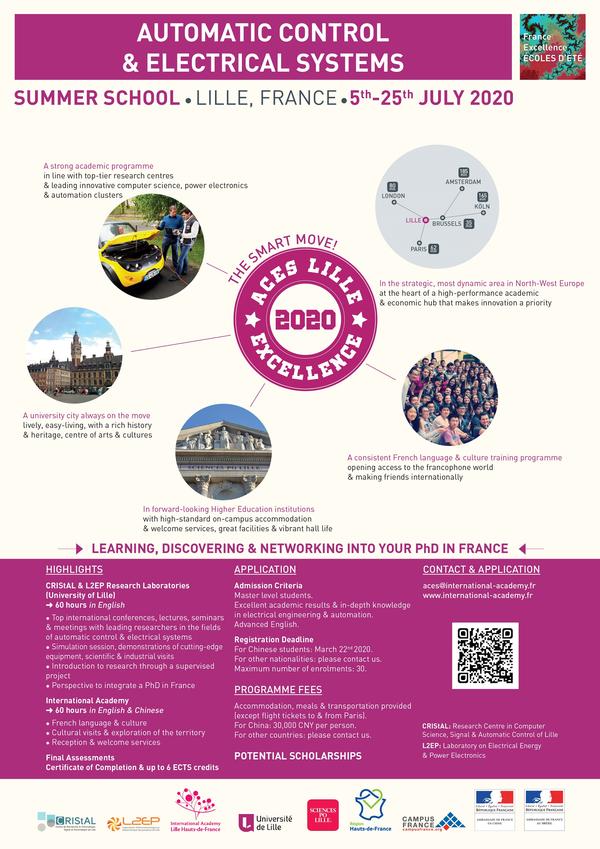
WELCOME DATE
Sunday July 5th 2020.
BEGINNING OF THE PROGRAMME
Monday July 6th 2020.
HIGHLIGHTS
ACES 2020: THE SMART MOVE!
Co-organised by the University of Lille (in the top 100 European most innovative universities of the Times Higher Education ranking), and the International Academy (summer university for international students in Hauts-de-France), the France Excellence Summer School ACES 2020 is a strong 120-hour training programme focusing on the fundamental aspects of control, observation and electrical systems in line with top-tier research centres and leading innovative computer science, power electronics and automation clusters.
Midway between Paris, London and Brussels, at the heart of a high-performance academic and economic hub that makes innovation a priority, ACES 2020 will provide, on forward-looking and lively campuses, high-standard English-taught classes, scientific and industrial immersion in the field, as well as an introduction to research through a supervised project.
Broadening your international experience under enjoyable and comfortable conditions with fellow students from pre-PhD France Excellence summer schools, ACES 2020 will offer lively social and festive events, full welcome services (incl. accommodation and catering), consistent French language and culture classes, as well as visits of remarkable historical and natural sites in France and Belgium, opening access to a European region always on the move.
ACES 2020 will build upon the successful ACES 2018 France Excellence Summer School.
For more information and detailed programme with hyperlinks, please check out our dedicated website: http://aces.cue-lillenorddefrance.fr
1 - FACILITIES
Together with the COPAIN association, the International Academy will provide full welcome services, high standard facilities and a vibrant hall life.
COPAIN’s purpose is to offer practical support to Northern France international students; the International Academy is devoted to offering services to international students, filling the requirements of the France Excellence programme.
BEFORE YOUR ARRIVAL
From March 2020 on, the COPAIN association and local international students will run a conversation group in Chinese and English via a free instant messaging service (WeChat & WhatsApp) to the benefit of our 2020 France Excellence Summer Schools participants.
ARRIVAL IN FRANCE
The COPAIN association will welcome you at Paris-Charles de Gaulle Airport (CDG) on Sunday July 5th 2020 at 12 pm (noon), and then drive you directly by bus to your residence in Lille metropolis.
ACCOMMODATION
You will be staying at REEFLEX International Residence Hall on the 370-acre leading scientific campus of the University of Lille located 10 min away by metro to Lille city centre (and 3 min to the popular V2 shopping mall). The furnished single rooms will be 16-18 m², with private kitchen and bathroom, and unlimited wifi access.
CATERING
All meals (breakfast, lunch and dinner) are included:
- Depending on your schedule, breakfast will be delivered to your residence.
- Throughout your stay, lunch will be delivered to your teaching venue or booked in town. We will do our utmost to offer you varied meals each time.
- Now and then, dinner will be booked in French or Chinese restaurants to give you a chance to mingle with other international students in a friendly atmosphere.
We hope you will be delighted to taste our French food! But as we know it may be harsh to suddenly switch from one diet to another, we will also take into account your cultural diversity and you will be given a prepaid card with which you will have the possibility to shop in a supermarket next to your residence for the rest of the meals.
TRANSPORT
On your first day in Lille you will be handed an Ilévia travel card (local transportation company), offering unlimited use of the public transport networks in Lille metropolis (underground, bus, tram and train) and covering 650 km².
RETURN
The COPAIN association will drive you back to Paris-Charles de Gaulle airport (CDG) on Saturday 25th July at 12 pm (noon).
2 - SCIENTIFIC SYLLABUS
OPERATORS/LOCATION
The scientific programme of ACES 2020 will be operated by two most renowned research laboratories in the fields of electrical engineering and automation: the Research Centre in Computer science, Signal and Automatic control of Lille (CRIStAL, 400 members) and the Laboratory on Electrical Energy and Power Electronics (L2EP, 100 members).
It will take place at the core of the University of Lille campus: in the pioneering-spirited building of Lilliad Learning Centre Innovation, an unprecedented combination for showing, promoting, thinking and making innovation.
The University of Lille has a double Master degree with Harbin Institute of Technology (HIT); the best Chinese students are selected to continue in co-supervised PhD degrees in the CRIStAL or L2EP research laboratories.
Both labs offer PhD theses on various topics including automatic control and electrical systems. Globally ¼ of the PhD are co-supervised with international universities (Canada, China, Europe, North Africa, etc.) and ¼ of the PhD are in collaboration with the industrial world (Alstom, PSA Peugeot Citroën, Renault, Siemens, etc.).
The CRIStAL research laboratory has a joint research laboratory with Nanjing University of Sciences and Technology (NUST), focused on automatic control: the LaFCAS. The L2EP research laboratory has annually held an international Summer School “Energetic Macroscopic Representation, modelling and control of electric vehicles and other applications” since 2006 (even year in Lille, odd year abroad) – the 2008 edition was organised in Harbin (China).
These parnerships and experiences will benefit the ACES 2020 Summer School.
CONTENT OUTLINE
Focusing on the fundamental aspects of control, observation and electrical systems, ACES 2020 will offer top international conferences, lectures, seminars and meetings with leading researchers in the fields of automatic control and electrical systems, simulation session and demonstrations of cutting-edge equipment, scientific and industrial visits, as well as an introduction to research through a supervised project. The quality of the work undertaken and your scientific potential will be assessed.
Particular emphasis will be laid on hybrid systems, embedded and networked control systems, electric vehicles and autonomous vehicles, capable of inventing and developing new breakthroughs and technological developments.
Half of the schedule will be devoted to the 60-hour scientific programme taught in English.
- LECTURES & SEMINARS (30h)
- ASSESSMENT (3h)
- SIMULATION SESSION (6h)
- CONFERENCES (6h)
- SCIENTIFIC RESEARCH PROJECT (12h)
- SCIENTIFIC VISIT & INDUSTRIAL MEETING (3h)
TEACHING TEAM
Prof. Lotfi BELKOURA, CRISTtAL, Full Professor, University of Lille
Prof. Alain BOUSCAYROL, L2EP, Full Professor, University of Lille (C1)
Dr. CHEN Keyu, Product Technical Manager (PTM), Valeo
Ms. Elis De CASTRO, L2EP, PhD student, University of Lille (who attended ACES 2018)
Dr. Denis EFIMOV, CRIStAL, INRIA Research Associate (C6)
Prof. Maan El BADAOUI El NAJJAR, CRISTtAL, Full Professor, University of Lille (C7)
Dr. Ronan GERMAN, Associate Professor, L2EP, University of Lille (C2)
Dr. Laurentiu HETEL, CRIStAL, CNRS Research Associate (C8)
Prof. Eric HITTINGER, Associate Professor, Rochester Institute of Technology, USA
Dr. John KLEIN, CRISTtAL, Associate Professor, University of Lille (C4)
Dr. François LEMAIRE, CRISTtAL, Associate Professor, University of Lille (C9)
Prof. Betty LEMAIRE-SEMAIL, L2EP, Full Professor, University of Lille
Dr. Walter LHOMME, L2EP, Associate Professor University of Lille (C3)
Mr. LI Kaibo, L2EP, PhD student, University of Lille
Mr. Ryan O’BERRIEL, L2EP, PhD student, University of Lille (who attended ACES 2018)
Dr. Mihaly PETRECZKY, CRIStAL, CNRS Research Associate (C5)
Dr. TANG Zuqi, L2EP, Associate Professor, University of Lille
Dr. Jean-Marc VANNOBEL, CRIStAL, Associate Professor, University of Lille
Prof. WANG Haoping, Deputy Dean of the Sino-French Engineer School, Nanjing University of Science and Technology
LECTURES AND SEMINARS
The teaching programme of ACES 2020 is divided in two parts on the following topics:
1. ELECTRICAL SYSTEMS
C1: Hybrid and Electric Vehicles
State-of-the-art of hybrid and electric vehicles (limits of conventional vehicles, different kinds of electric and hybrid vehicles, challenges of low-carbon vehicles, examples of innovative developments).
C2: Energetic Macroscopic Representation
EMR is the graphical formalism for the analysis of power flow with a system. It leads to define the relevant design, control and energy management of complex energetic systems, such as renewable energy conversion systems or advanced transportation systems.
C3: Simulation of an Electric Vehicle (see below)
2. AUTOMATIC CONTROL
C4: An Introduction to Reinforcement Learning
AI-based systems that are able to learn complex strategies by interacting with their environment have recently gained a lot of attention. One of the most frequently reported such achievement in the media is Google’s AlphaGo which defeated the world Go game champion. These artificially trained decision making systems can also be applied to control theoretic issues. Indeed the feedback loop principle consists in checking if a given input (or command signal) achieves the prescribed output. In the reinforcement learning paradigm, the similarity between the actual output and the prescribed one is regarded as a reward. The learner can thus select inputs that bring as much as cumulated reward over time as possible.
In this course, I will present the general concepts of reinforcement learning which mainly rely on the Markov Decision Process model. I will show that decision functions, also called policies, can learned by maximizing the expected cumulative reward when the set of actions is finite. Extensions to continuous actions spaces will be evoked and examples of learned controllers will be presented.
C5: System Identification
In this course you will be introduced to the basics of the identification of linear systems and, if time permits, we will also discuss its extension to nonlinear and hybrid systems. We will also cover the theoretical basis of system identification, including the realisation theory, minimality, reachability, observability, the existence of a realisation, the notion of Hankel matrix, identifiability and persistence of excitation.
C6: Estimation in Linear and Nonlinear Systems
First, the basic notions of observability will be discussed for linear and nonlinear systems invoking the geometric and algebraic approaches. Second, the problem of the observer design in linear systems will be dealt with (full and reduced order observers). Finally, a nonlinear observer design will be considered, which is converging in a finite time using the notion of homogeneity.
C7: Multi-Sensor Data Fusion for Mobile Robot Localisation
The robot localization is the problem of estimating the pose of the robot relative to a map. In other words, the robot has to answer accurately the question “Where am I?” while using erroneous measurements sensors and inaccurate map.
How can robots determine their state and properties of the surrounding environment from noisy sensor measurements in time? In this module you will learn how to get robots to incorporate uncertainty into estimating state. Specific topics that will be covered include probabilistic models, Bayesian filtering for localization and mapping. The course will cover different topics and techniques in the context of mobile robots localization. We will cover also techniques such as SLAM with the family of Kalman filters, information filters. For this part, the attention will be devoted to the integrity monitoring of the state estimation method
C8: Analysis and Design of Networked Control Systems with Aperiodic Sampling
Embedded and networked control systems are often required to share a limited amount of computational and transmission resources between different applications. This may lead to fluctuations of the sampling interval, due to the interaction between real-time control algorithms and task / communication scheduling protocols. This class will focus on the stability of networked control systems with time-varying sampling intervals.
You will be presented with basic concepts and recent research directions. An overview of time-delay, hybrid, discrete-time and input-output models for systems with aperiodic sampling will be given and specific analysis tools will be introduced. At last, an emerging topic concerning the design of stabilising state-dependent sampling laws will be discussed.
C9: Integro-Differential Algebra for Parameter Estimation
The parameter estimation problem consists in recovering the values of the parameters of a system (governed for example by a set of nonlinear differential equations) from an incomplete observation of its state. A possible approach consists in computing the so-called input/output equations (using elimination algorithms in the context of differential algebra) which only involve the parameters and the measured signals (i.e. the inputs and outputs). The (numerical) precision of the parameter estimation is usually compromised when the I/O equations involve high order derivations. We will present ongoing research consisting in reducing the order of derivations by integrating the I/O equations.
OTHER SCIENTIFIC ACTIVITIES
CONFERENCES
1. High-Integration Smart Innovative Electric Drive
Prof. Betty LEMAIRE-SEMAIL, Head of the Integrated Smart Energy Converter (CE2I) cluster
2. Towards Smart Factory for Industry 4.0: Challenges, Design Principles and Technical Approaches
Dr. Jean-Marc VANNOBEL, INCASE European Interregional Project
3. Power Advanced N-Level Digital Architecture for Simulation of Electrified Vehicles (PANDA)
Prof. Alain BOUSCAYROL, H2020 European project
4. Campus of University with Mobility Based on Innovation and Carbon Neutral (CUMIN)
Prof. Eric HITTINGER, Interdisciplinary programme of the University of Lille
5. Scientific Research Clusters and Economic Hubs in Hauts-de-France (Northern France Region)
Transverse conference correlated to the domains of France Excellence Summer Schools students and coordinated by competent clusters and hubs.
SIMULATION SESSION
The Simulation of an Electric Vehicle will be dedicated to the control of the L2EP research laboratory’s electric vehicle. The simulation of the EV of the L2EP research laboratory will be developed using EMR and Matlab-Simulink. You will then have the opportunity to discover experimental facilities and the real vehicle.
SCIENTIFIC RESEARCH PROJECT
Designed to facilitate your admission to Doctoral programmes in France, the Scientific Research Project will require both personal and teamwork. It will include 6 sessions of tutorials or free discussion with researchers and PhD students from the CRIStAL and L2EP laboratories. The project will involve the analysis of articles, bibliographical summaries, a presentation of state-of-the-art trends in the chosen research topic, simulations when appropriate and a final project defence in front of the scientific board.
You will have every opportunity to contact teachers/researchers with a view to supervision of a future PhD programme; assistance will be provided in maintaining contact in order to finalise the project up to enrolment in the doctoral programme.
SCIENTIFIC VISIT AND INDUSTRIAL MEETING
You will make the acquaintance of automotive French manufacturers through a meeting of high technological interest with Dr. CHEN Keyu from the innovative company Valeo (automotive supplier and partner to automakers worldwide).
You will visit Xperium, the experimental demonstrations centre of new research development at the University of Lille. You will get to see the most relevant demonstrations in the ACES 2020 topics.
PREREQUISITE
Master students only.
Advanced English, excellent academic results and in-depth knowledge in electrical engineering & automation.
PROSPECTS
As a research-oriented Summer School, ACES 2020 is a springboard for your enrolment in a PhD programme in France in the fields of automation and power electronics.
KEYWORDS
Advanced Modelling Methods, Advanced Control Methods, Hybrid and Electric Vehicles, Energetic Macroscopic Representation, Innovative Energy Storage Systems, High-Efficiency Electrical Machines, Networked/Embedded Control, Geo-Localisation.
NB: Minor modifications to the scientific programme may occur.
3 - CULTURAL SYLLABUS
OPERATORS/LOCATION
The International Academy, which fosters integration and interactive exchange between students worldwide from various disciplines, will deliver exciting teachings in the French language and culture. Classes will take place in the state-of-the-art building of graduate school Sciences Po Lille, perfectly located in downtown Lille, offering you a great occasion for a full immersion into the life of a vibrant summer campus!
The International Academy, together with the COPAIN association, will organise valuable site visits of historic and natural interest on a regional, national and euroregional scale, along with festive events.
CONTENT OUTLINE
Want to learn French? Feel like discovering the French society and culture? Always dreamed of visiting historical and natural sites in France? ACES 2020 will give you that opportunity, leading to a full access to the French-speaking world.
Half of the schedule will be devoted to the 60-hour linguistic, social and cultural programme delivered in English. When appropriate, you will be mixed with fellow students from other France Excellence Summer Schools.
- FRENCH LANGUAGE AND CULTURE CLASSES (26h)
- CULTURAL VISITS AND EXPLORATION OF THE TERRITORY (30h)
- RECEPTION (4h)
FRENCH LANGUAGE AND CULTURE CLASSES
Experienced higher education advisors, teachers, lecturers, professionals will offer their competence in the following domains:
1. French for Foreigners & Assessment (20h). Getting to the next language level (when applicable, homogeneous groups will be formed). General written and spoken French. You will learn how to interact through appropriate and various activities in connection with daily life. A final assessment of the knowledge and skills acquired in French language during the session will close your training.
2. French Culture (6h). Getting introduced to the French civilisation to gain a richer perspective on its numerous aspects and make the best of your short stay while studying in France. In the framework of interactive workshops, you will be given cultural keys together with a little and prominent historic facts connected with the cultural visits.
CULTURAL VISITS AND EXPLORATION OF THE TERRITORY
You will be taken out of the teaching premises to visit emblematic sites in France, Flanders and the Hauts-de-France (Northern France region). The latter is typified by its maritime and Flemish borders, agrarian economy, ancient trade fairs tradition, former textile and mine industries steeped in the Catholic values of its captains and vivid memory of wounds inflicted by two world wars. France’s youngest region is now renowned for its competitiveness, dynamic cultural and social life, and a unique mix of Flemish cheerfulness and French elegance.
1. Excursion to the Opal Coast: Visit of the spectacular two Northern Capes Site from which one can see the British coast; visit of Arc International, pioneer in the glass-making history since 1825 (Saturday July 11th).
2. Ch’ti Evening in the Flanders Hills: Dinner in a traditional restaurant and introduction to the Ch'ti linguistic and cultural specificity (Saturday July 11th).
3. Old Lille & Fortifications: Guided tour of streets, squares and monuments of the old town and its beautiful ancient Flemish architecture, as well as the pentagonal Citadel of the city wall of Lille (Sunday July 12th).
4. Celebration of the Bastille Day: Sightseeing of the great fireworks, preceded by a popular open-air ball in Lille Metropolis on the eve of the French National Day (Monday July 13th).
5. Bruges, “the Venice of the North” (Belgium): Free time in the charming old Flemish city, world famous for its beautiful canals, the splendour of its medieval architectural heritage and its masterpieces of Flemish primitive art (Tuesday July 14th).
6. Royal Versailles: Visit of the monumental Palace of Versailles, once a royal residence and one of the greatest achievements in French 17th century art with its world-famous Hall of Mirrors, jewel-like Royal Opera and the gardens à la française (Saturday July 18th).
RECEPTION
On the first day, you will be welcomed by the ACES 2020 team and receive detailed information about the Summer School. An official reception at the Hauts-de-France Regional Council headquarters in Lille will be an institutional climax. Last but not least, a festive closing ceremony will crown your pre-PhD France Excellence Summer School.
4. SUMMARY
NAME OF THE SCHOOL
“Automatic Control and Electrical Systems” (ACES 2020)
WELCOME DATE
Sunday July 5th 2020.
PROGRAMME DATES AND ORGANISERS
From Sunday July 5th to Saturday July 25th 2020.
Organised by the University of Lille & the International Academy (summer university for international students in Hauts-de-France).
TOTAL NUMBER OF PLACES
30
PRICE
Price: 30 000 RMB
The price does not include flight tickets to and from Paris.
Accommodation, meals and transportation are all included.
ECTS CREDITS
6 European Credit Transfer and Accumulation System (ECTS) credits pertaining to the completed assessments and a personalised Certificate of Completion that authenticates the students’ participation.
LEVEL
ACES 2020 is open to Master students only.
OPTION
The France Excellence Summer School can be immediately followed up by a specialist training (29th July - 26th August 2020) in French academic methodology, language and culture, with a particular benefit for students pursuing studies in the French higher education system. Includes an official “Test de Connaissance du Français” (TCF) assessing your French language skills.
For more information please visit: http://aces.cue-lillenorddefrance.fr
To apply, please follow the application procedure described on the main page
